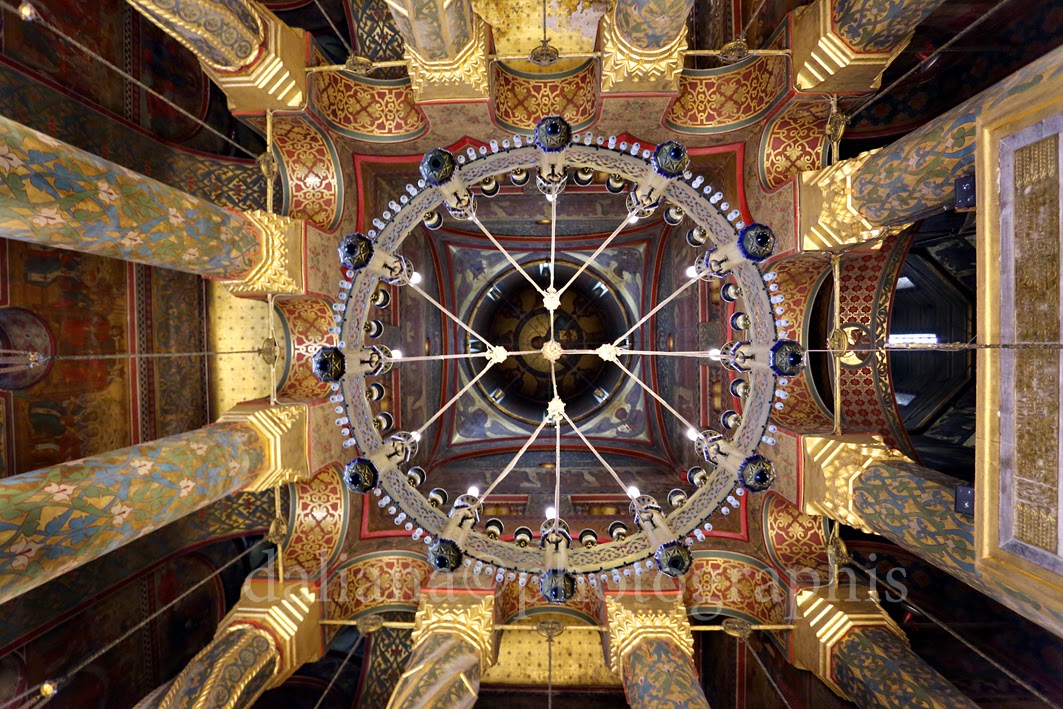Carol I (20 April 1839 / 10 October 1914), born Prince Karl of Hohenzollern-Sigmaringen was the ruler of Romania from 1866 to 1914. He was elected Ruling Prince (Domnitor) of the Romanian United Principalities on 20 April 1866 after the overthrow of Alexandru Ioan Cuza by a palace coup. After the defeat of the Ottoman Empire (1878) in the Russo-Turkish War,
he declared Romania a sovereign nation (the country had been under the
nominal suzerainty of the Ottoman Empire until then). He was proclaimed King of Romania on 26 March [O.S. 14 March] 1881. He was the first ruler of the Hohenzollern-Sigmaringen dynasty, which ruled the country until the proclamation of a republic in 1947.
Carol I al României, Principe de Hohenzollern-Sigmaringen, pe numele său complet Karl Eitel Friedrich Zephyrinus Ludwig von Hohenzollern-Sigmaringen, (n. 20 aprilie 1839, Sigmaringen - d. 10 octombrie 1914, Sinaia) a fost domnitorul, apoi regele României, care a condus Principatele Române și apoi România după abdicarea forțată de o lovitură de sta a lui Alexandru Ioan Cuza. Din 1867 a devenit membru de onoare al Academiei Române, iar între 1879 și 1914 a fost protector și președinte de onoare al aceleiași instituții.
În toamna anului
1914, CAROL I a fost înmormântat la Curtea de Argeș, în Biserica
episcopală, unde, doi ani mai târziu, avea să-şi găsească odihna și
soția sa, ELISABETA.
Despre CAROL I, Constantin C. Giurescu scria:
"A avut simţul
datoriei şi al onoarei în gradul cel mai înalt, fiind o pildă vie pentru
toţi supuşii săi. A pus întotdeauna mai presus de sine statul, la a
cărui ridicare s-a gândit necontenit".
CAROL I, primul
rege al României, scria în testamentul său: "Având aproape 60 de ani,
privesc ca o datorie ca să mă hotărăsc a lua cele din urmă dispoziţii.
Alcătuind acest testament, mă gândesc, înainte de toate, la iubitul meu
popor, pentru care inima mea a bătut neîncetat şi care a avut deplină
încredere în mine. Viaţa mea era aşa strâns legată de această de
Dumnezeu binecuvântată Ţară, că doresc să i las, şi după moartea mea,
dovezi vădite de adâncă simpatie şi de viul interes pe care le am avut
pentru dânsa. Zi şi noapte m-am gândit la fericirea României, care a
ajuns să ocupe acum o poziţie vrednică între statele europene.
M-am silit ca
simţământul religios să fie ridicat şi dezvoltat în toate straturile
societăţii şi ca fiecare să împlinească datoria sa, având ca ţintă numai
interesele statului (...) Succesorul meu la tron primeşte o moştenire
de care va fi mândru şi pe care el o va cârmui, am toată speranţa, în
spiritul meu, călăuzit fiind de deviza: «Totul pentru Ţară, nimic pentru
mine!»".
Tot la Curtea de Argeş îşi dorm somnul de veci: Regele FERDINAND şi Regina MARIA.






















































